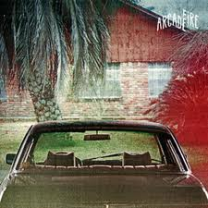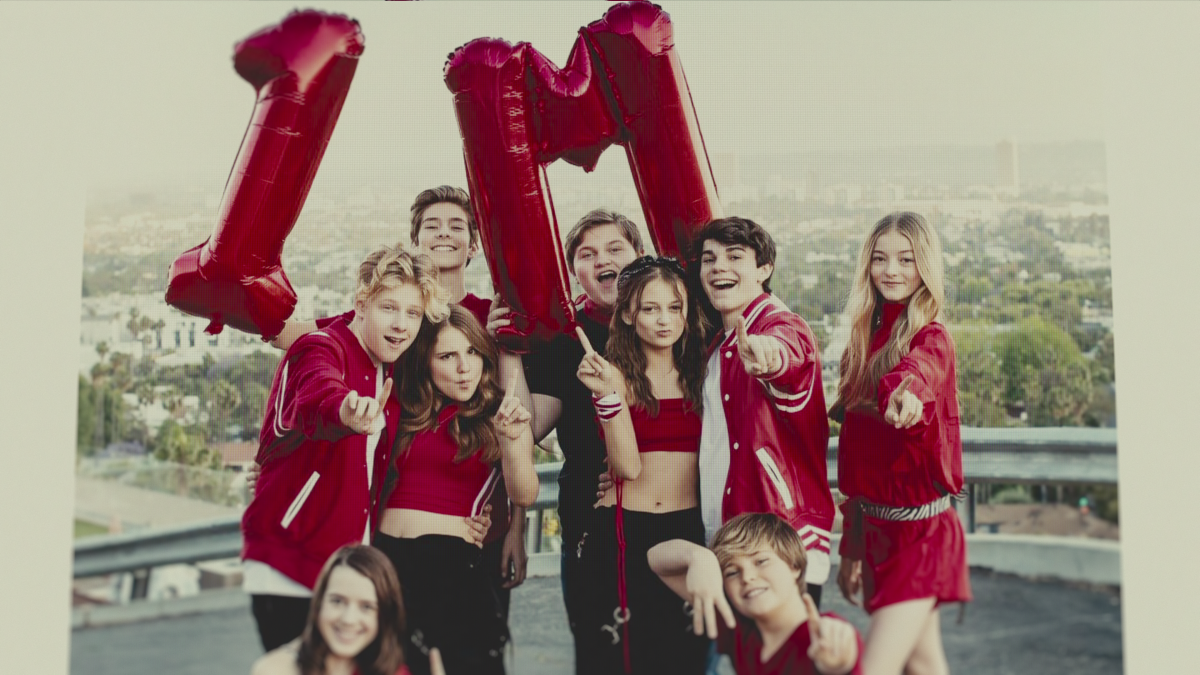Six years have passed since Arcade Fire’s beloved debut, “The Funeral”. Drenched in emotional lyrics and textured with a variety of instruments, the album became a quick favorite of music lovers and critics alike. The sound captured in the debut was so incredible that the band’s second, “Neon Bible” was unable to live up to the hype of its brother. On August 3, 2010, the band’s third was released in North America and naturally, the obvious thought emerged—Would “The Suburbs” live up to the musical talent captured in the debut or would it fall short like “Neon”?
Lyrically, the two albums differ quite considerably but manage to carry a similar lament. “The Suburbs” however, takes on a much more frustrated and anxious tone. The narrator is despondent as he reflects on modern society’s (specifically the suburbs’) ability to drain the dreams from the youth and from himself. It’s a somber conflict that lyricist/lead-vocalist Win Butler worked hard to vividly express in each corner of his album’s 16 tracks. The third track on the album, “Modern Man”, features some of Win’s most discouraged lyricism, “In my dream I was almost there/ And you pulled me aside and said you’re going nowhere”. The song reflects on his childhood dreams giving way to the responsibilities and anxieties he deals with as a “Modern Man”.
“The Suburbs” acts simultaneously as the album title and as the location in which the songs are being told through. Butler reduces the image of the suburbs to a prison as he sings of suppressed love, dreams and happiness– first as a child, then as an adult in his return. His directness is commendable and is only augmented by the forceful pace of the songs.
The first track, “The Suburbs” sets the standard. All the instruments– piano, guitar, bass, drums, and violins—crash in immediately, pounding along forcefully, while Butler’s uneasy lyrics settle over the top. The structure is simple but the powerful vocals really soar as Butler sings the chorus, “Sometimes I can’t believe it, I’m moving past the feeling”. While the starting track on “The Funeral” featured one instrument following in after the other to create a steady rise to a noisy epic, the suburbs starts abruptly and ends just as suddenly—evoking a certain anxious feeling through steady accents and rigidity that continues throughout.
As the tracks play out though, it is clear that AF spent more time on the overall sound of the album and less on the individuality of each track. “Month of May” sticks out from the rest with edgy electric guitar and rock drums absorbing the foreground while dark ambiences whine in the background. While its sound is one of the most protruding of the album, “Month of May’s” lyrics are probably the least memorable. Lines like, “It ain’t heavy and it ain’t light but how are you going to move it with your arms folded tight?” are arguably the least engaging of the album.
Weighing in at a heavy 16 songs, it’s only natural that the album falls into redundancy at certain points. The band does create several unique sounds but at the same time only takes baby steps out of their musical comfort zone. The most notable step is the track, “Sprawl II [Mountains beyond Mountains]” (although “Sprawl I” is also great). 80’s sounding synthesizers and a bouncing drum part supply a refreshing anecdote to the album as it leads into its final song.
In the end, “The Suburbs” is all we would expect from an Arcade Fire album– It is an emotional, dark, well-paste piece of art. It frantically brings the listener into the narrator’s struggle from the very start and refuses to let go until the final track slowly moans out. And yet the question still remains: Is The Suburbs better then its predecessors? My answer: Maybe, but in the end, who cares? The album stands alone so nicely that it’d be a shame to keep comparing it to the band’s previous. Both are astounding and both should be bought and listened to from begging to end. They leave us wanting more, but until then we are left with Butler’s powerful lyrics kicking around in our heads, and trust me friends, that’s where you want them.









